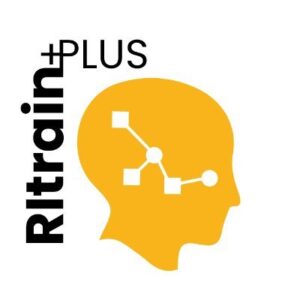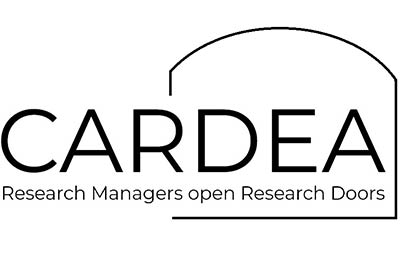RM Framework
The project RM Framework aims to support the development of a European qualification system for Research Management (RM), enhancing interoperability and improving the RM profession within the European Research Area (ERA). The Framework is designed to guide policy makers, training and networking providers in empowering individual Research Managers (RMs) through standardised professional development programmes. By offering a common framework yet maintaining a flexible approach, the project acknowledges the local and national differences across Europe and aims to develop training that raises awareness, improves quality, and supports sustainable RM careers.
RM Framework emphasises collaboration with the leadership of research performing organisations (RPOs) to create a suitable transition model, and ensuring that innovative and practical solutions are identified and implemented by reflecting the current ways of working. A core element of the development of the Framework is the use of design thinking, a creative and human-centred problem-solving approach, to tailor RM training and accreditation processes. This methodology ensures that the Framework is both practical and grounded in the real-world needs of research managers.
By engaging key stakeholders to develop modular, tailored solutions, including the creation of a quality label backed by impact assessment, the project aims to foster sustainable, long-term improvements in the professional development programmes for research managers across Europe.
The project RM Framework has received funding from the European Union’s Horizon Europe programme under grant agreement number 101188073.
Consortium
ERA actions on Research Management
The European Research Area (ERA) Policy Agenda 2022-2024 launched by the Pact for Research and Innovation included an action dedicated to Research Management, the so-called ERA Action 17. It aimed to strengthen the strategic capacity of Europe’s public research performing and funding organizations by focusing on upskilling research managers, improving their recognition, enhancing networking opportunities, and building institutional capacity. It addressed challenges like uneven expertise distribution, the need for specialized training, and the lack of formal recognition for research managers. The initiative resulted in important steps paving the way to the recognition of the profession, however, the need for further improvements in indicated by the fact that the Policy Agenda 2025-2027 also includes a dedicated action to the topic, under the title “the new ERA of Research Management”.
"Empowering R&I: A New ERA in Research Management" aims to strengthen the recognition and career development of research managers in Europe. It seeks to improve access to training and upskilling tools, including AI guidance, and create a Europe-wide learning and skills development scheme with peer-to-peer learning and mobility. The initiative will promote better networking between public organizations, research funders, and industry to enhance professional development and career paths. Key outcomes include launching a flexible careers framework in 2025, creating a European Charter for research managers in 2026, and establishing an online hub for training and certification under the ERA Talent Platform in 2027. This action addresses the growing need for specialized research management support to boost the efficiency and impact of the European R&I system.
ERA Platform: https://european-research-area.ec.europa.eu/
RM Roadmap
RM Roadmap aims to create a future-focused roadmap for research management (RM) in Europe and build a supportive community. It seeks to strengthen the EU's research management workforce, including in widening countries, to boost competitiveness and economic performance. By forming a pan-European network of research managers, it fosters strategic cross-border partnerships between industry, research funders, and institutions. The project co-creates a consensus on the future of RM and provide information on training, networking, funding, and mobility opportunities.
Synergetic initiatives
The EURESTMA (European Research and Transfer Management) programme is a comprehensive certification initiative designed to professionalize research and transfer management across Europe. Organized by the University of Applied Sciences Osnabrück in collaboration with leading academic institutions, it combines two on-site weeks in Osnabrück, Germany, and Brussels, Belgium, with self-study components. The programme aims to equip research managers with up-to-date tools and methods, foster a pan-European professional network, and enhance institutional strategies in response to evolving research policies.
The project foRMAtion developed innovative tools, educational and training methods for the empowerment of students as potential Research Managers through an educational module and mentorship programme. These activities provided the necessary knowledge & skills (both soft & hard) to support their career development. By doing so, foRMAtion aimed to make the profession of research management and administration attractive and raising awareness on the importance of RMAs, contributing to the preparation and implementation of excellent European educational and research projects.
RItrainPlus brings together research infrastructures, core facilities, business management schools, and European universities to enhance the management and operation of scientific facilities across Europe. Its objectives include the development of continuous professional development (CPD) courses; establishing a European School for Management of Research Infrastructures (ESMRI) to provide a sustainable foundation for training highly qualified personnel in managing complex scientific operations; and creating a Community of Practice to facilitate peer learning and knowledge sharing among professionals in the field. By implementing these initiatives, RItrainPlus aims to professionalize research infrastructure management, thereby enhancing the efficiency and long-term value of scientific facilities in Europe.
CARDEA (Career Acknowledgement for Research Managers) is an EU-funded project led by University College Cork to enhance the visibility and professional development of research managers in Europe. It aims to create a European Competence Framework (RM Comp), develop a Capacity Maturity Model to assess institutional activities, and establish a training and networking hub. CARDEA seeks to standardize skills, support career progression, and strengthen the role of research managers in the EU.
The project seeks to develop an objective tool—the Research Administration Professional IDentity Values Scale (RAPIDS)—to measure the professional identity of Research Administrators (RAs) globally. This will enhance recognition of the profession and support its growth. Using a mixed-methods approach, including literature review, interviews, focus groups, and surveys, the project aims to create and validate RAPIDS. The scale will help current and aspiring RAs, professional associations like NCURA, and policymakers better understand and strengthen the field's core values and identity.
MAPIT – M(obilizing) A(dvanced) P(artnerships) for Digital I(nnovation) and T(ransformation) – bridges the gap between innovative SMEs, research entities, and European R&I networks, fostering sustainable international partnerships. By establishing digital innovation centers and upskilling R&I managers, MAPIT strengthens university-industry collaborations, promotes internationalisation, and empowers research entities to thrive within Horizon Europe and the European Research Area.
The project V4+WB RMA Network Plus aims to further reinforce the network of Research Support Professionals, or in short, Research Managers and Administrators (RMAs). Through intensified knowledge exchange and capacity building activities it will contribute to the increased competitiveness of the Visegrad Four and Western Balkan countries in Research and Innovation.





